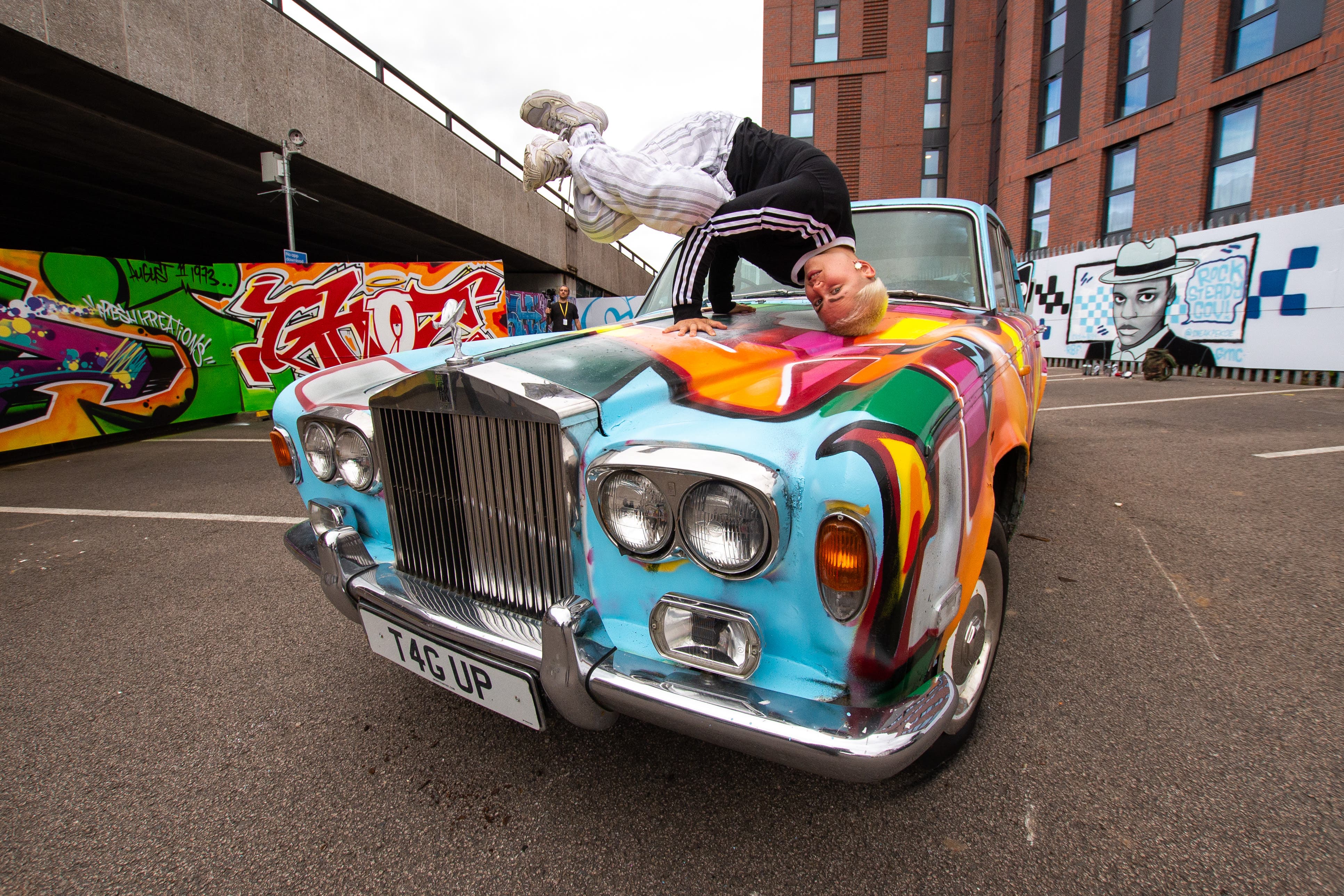Meet the former footballer aiming to make Olympic breaking history
Emma Houston is set to take part in the 2024 Olympics in Paris

Your support helps us to tell the story
From reproductive rights to climate change to Big Tech, The Independent is on the ground when the story is developing. Whether it's investigating the financials of Elon Musk's pro-Trump PAC or producing our latest documentary, 'The A Word', which shines a light on the American women fighting for reproductive rights, we know how important it is to parse out the facts from the messaging.
At such a critical moment in US history, we need reporters on the ground. Your donation allows us to keep sending journalists to speak to both sides of the story.
The Independent is trusted by Americans across the entire political spectrum. And unlike many other quality news outlets, we choose not to lock Americans out of our reporting and analysis with paywalls. We believe quality journalism should be available to everyone, paid for by those who can afford it.
Your support makes all the difference.Emma Houston was just like millions of other kids who grew up playing football and marvelling at the 100-metre sprints and high jump when the Olympics appeared on their TV screen once every four years.
But Houston’s decision to call time on a promising football career in favour of breakdancing during their teenage years sent their sporting trajectory swivelling in a unusual direction that has placed them on the brink of making history.
The Stirling 31-year-old, whose B-girl name is ‘Shortbread’, and who uses the pronouns they/them, is one of a group of around half a dozen breakdancers recognised by the newly instituted governing body, Breaking GB, as potential medal hopes when the sport makes its Olympic debut on the Place de la Concorde at Paris 2024.
“As a kid I was obsessed with watching the Olympics,” Houston told the PA news agency. “I love watching the 100-metre sprints and the long and high jumps.
“It’s been really cool to connect the dots, from watching it and thinking it would be cool to be involved, to having the possibility of doing something really historical as one of the first breakdancers to go to the Games.”
Olympic inclusion has led to a £135,000 funding award for Breaking GB, which was announced by UK Sport on Tuesday ahead of this weekend’s European Breakdancing Championships in Manchester, which will provide a further indication of the medal potential of its athletes for 2024.
Houston took up breakdancing after calling time on their football career in which they played at junior levels with Falkirk Ladies. They went on to study contemporary dance in Dundee then the Royal Academy of Dance in London, and now runs their own dance company, Houston Dance Collective.
“I was struggling a bit with football, I was very light and small and it was becoming harder to out-muscle the bigger players, and I was becoming much more prone to being injured,” said Houston.
“Simultaneously I discovered dance and the breadth of opportunities within it, and I found I was able to explore moving my body in different ways.
“It was a tough choice to let football go, but I was swept away with dance and all the things I could discover within it. I discovered it all on my own, this whole underground culture, and I quite liked that I’d found something that was mine.”
Breaking, which Olympic chiefs hope will build on the huge success of the expanded ‘urban’ sports programme in Tokyo, made an impressive debut at the 2018 Youth Olympics in Buenos Aires.
It pits competitors in a series of head-to-head ‘throw downs’, with the winners determined by a panel of judges based on set criteria including technique, performativity and creativity.
Breaking GB president Oliver ‘Hooch’ Whittle, founder and organiser of the prestigious UK B-Boy Championships since 1996, says any perceived sacrifices breakdancing will have to make due to Olympic inclusion will be out-weighed by the sheer scope of the opportunity to showcase it as a sport.
Breakdancing just has this incredible magnetism. People see it for the first time and go home completely captivated by what they have seen.
“What do you gain and what do you lose? That’s the balance,” said Whittle. “We’re always trying to make sure that we reflect and represent the culture in the best way, but we don’t want to fall into the cliche of saying, if there’s no graffiti backdrop it’s not breaking.
“The sacrifice of the athletes will be no different to the effort they already put in around the world. It will just mean that through the Olympic programme they will have access to nutrition and physios but it won’t lead to a fundamentally different approach.
“Breakdancing just has this incredible magnetism. People see it for the first time and go home completely captivated by what they have seen.
“They don’t necessarily have to have a tracksuit and gym socks on – they can come in wearing jeans and a belt and still hit 10 air-flares and a great freeze at the end. Stuff that gymnasts work very hard to incorporate one of in their floor routines, these guys are doing 20 of them.
“That’s why I’m excited. I’m excited for people to witness it in massive numbers. And one of the things we realised straight away is the exposure we get from the Olympics is going to take breakdancing to a whole new level.”
The European Breaking Championships 2022 take place at Bell Vue Basketball Centre, Manchester from November 5-6
Join our commenting forum
Join thought-provoking conversations, follow other Independent readers and see their replies
0Comments